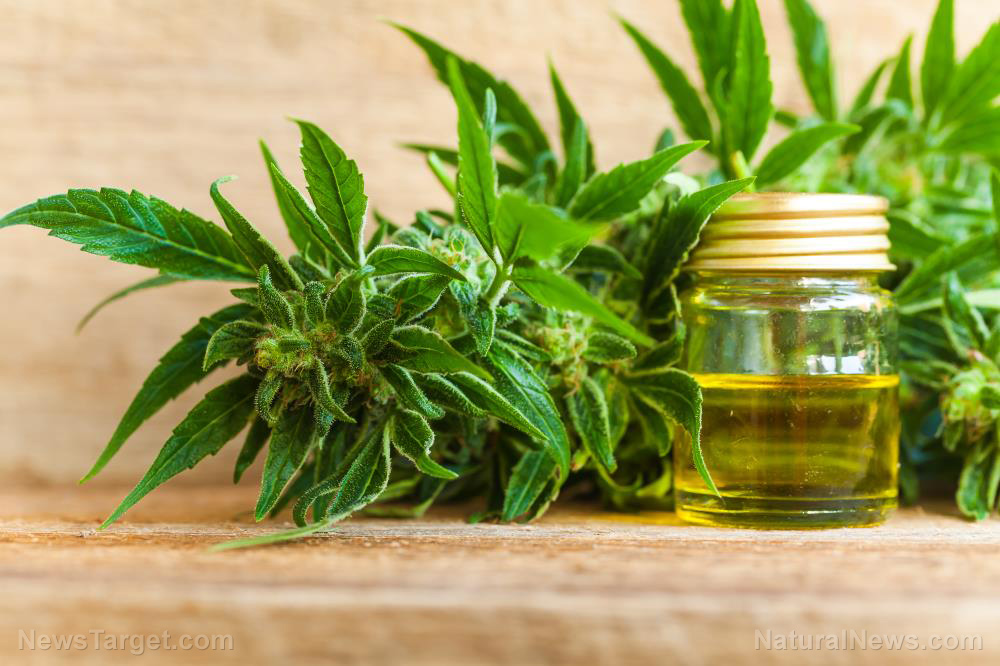Learn about brain health and nootropics to boost brain function
What science is confirming about the benefits of CBD oil


(Natural News) CBD oil is quickly becoming one of the most sought-after supplements on the market, but what do you really know about it? Scientists have been studying cannibidiol (CBD) for many years now, working to unravel the myriad of benefits afforded by this medicinal plant compound. CBD is one of hundreds of cannabinoid compounds found in the cannabis plant, and is now known to be a powerful, medicinal compound with a wide array of uses and benefits.
Unlike the more infamous tetrahydrocannabinol (THC), CBD is a non-psychoactive compound, meaning it does not produce the psychedelic effects that are characteristic of cannabis. Proponents of medical cannabis say that CBD is useful for an array of conditions, including cancer, seizure disorders, pain relief and more — and now science is backing up many of these claims, as well.
Science-backed benefits of CBD oil
Pain relief is one of the most well-documented uses for the cannabis plant. In fact, people have been using marijuana to treat pain since 2900 B.C. — and modern science is just starting to understand how. As Healthline reports, CBD is one of a few medicinal compounds found in the cannabis plant that are associated with pain relief.
Studies have shown that CBD interacts with the body’s endocannabinoid system, and it is through this bodily system that CBD is able to exact its pain-relieving effects. It’s posited that CBD can help mitigate chronic pain by influencing endocannabinoid receptor activity, interacting with neurotransmitters, and by decreasing inflammation.
In addition to pain management, studies have also shown that CBD can offer relief from depression and anxiety. As Eco Watch explains, scientists have surmised that CBD can help relieve these conditions through its effect on serotonin receptors in the brain. Serotonin is a neurotransmitter responsible for regulating mood, appetite and sleep. In a small study, participants given a CBD supplement before a public speaking test displayed substantial reductions in anxiety compared to those were given a placebo.
The power of the elements: Discover Colloidal Silver Mouthwash with quality, natural ingredients like Sangre de Drago sap, black walnut hulls, menthol crystals and more. Zero artificial sweeteners, colors or alcohol. Learn more at the Health Ranger Store and help support this news site.
CBD has also been shown to be immensely useful in the treatment of childhood seizure disorders, like Lennox-Gastaut syndrome and Dravet syndrome. There are many accounts of children who have suffered with intractable seizures that have been mostly cured with CBD oil or high-CBD cannabis. In a recent clinical study, the seizure-slashing benefits of CBD were officially confirmed.
There are many other benefits of CBD that scientists are still examining. For example, there is a growing number of people who are curing their cancer with cannabis. Many patients find success when they turn to cannabis after conventional pharmaceutical interventions fail.
CBD oil is also thought to help boost heart health, reduce the risk of heart disease, and perhaps, may even prevent diabetes. It may also prove useful in the treatment of addiction.
More about CBD oil
CBD oil is not the same thing as hemp seed oil or cannabis oil, and it is easy to get confused with all the choices on the market today. CBD oil differs from hemp seed or cannabis oils in a few ways. Hemp seed oil, while rich in an array of nutrients, does not typically contain significant amounts of cannabinoids. Cannabis oil, on the other hand, typically contains high amounts of THC, which is now known to have its own health benefits.
CBD oil is also often seen in two forms: A “full spectrum” oil, which will contain hundreds of other cannabinoids — including trace amounts of THC — or as an isolate, which will be 100-percent CBD. Research on these oils is still limited, but at least one study has reportedly shown that a full spectrum supplement was more beneficial in mice, according to Eco Watch.
You can learn more about the medicinal uses of CBD oil and more at CBDS.news.
Sources for this article include:
Click here to view full article